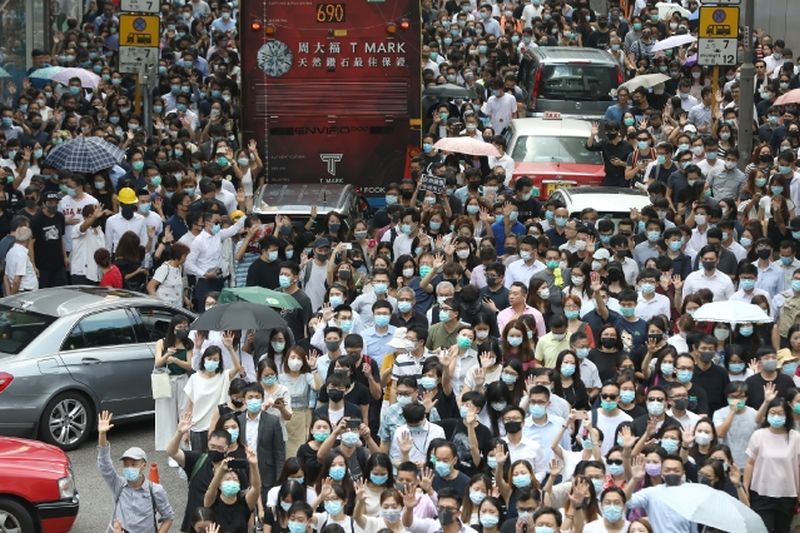“Think of all the destruction they [have done] to Hong Kong!” a friend messaged me.
He didn’t say who “they” were, though in context I can only imagine he was referring to the students who first occupied and are, as I write, making their last stand at the Hong Kong Polytechnic University (PolyU). And, yes, the students have done damage. They have torn up street furniture, torched public property and scared away business, damaging the economy.

They have also damaged freedom of speech: witness the peaceful if hot-tempered fool who gave them a finger-wagging to be immolated; witness the destruction to Maxim’s and other businesses who have peacefully expressed views opposed to the protesters’. Witness also the damage they have done to freedom of assembly, evidenced by large numbers of peaceful protestors staying away from rallies and marches for fear of subsequent violence.
But “they” could equally refer to the police, who have damaged the prospects for peace by exercising more force than mere restraint demands, who have fired tear gas and other projectiles causing damage to private homes and businesses, and who will damage their own reputation in the pyrrhic victory that will be PolyU.
“They” could also be those police who have damaged the rule of law by practices that rob their fellow citizens of the right to peaceful protest, who operate with legal impunity with neither badges nor numbers, who deny arrestees their legal due process.
“They” could also be Hong Kong’s own government which, whenever a door was open to a peaceful resolution, have slammed it shut or, more often, bumbled past it oblivious to the possibility that their own policies were damaging Hong Kong and have been for years.

“They” could be the Chinese Communist Party, whose use of violent rhetoric, and refusal to compromise, have damaged the Basic Law.
“They” could be all of us in Hong Kong, who in our complacency allowed ourselves to be immersed in a pot that has been brought to the boil one little infraction after another. The water has boiled, our city is damaged; we are little better than frogs.
“They” could be the rest of the world, who are happy to turn a blind eye to the damage China does to its own people, here and in Xinjiang and Tibet, so long as the dollars kept rolling in from trade and investment.
Choose the “they” that suits your political disposition, but consider this. Thirty years of global prosperity – albeit with ups and downs – has resulted in a tremendous alleviation of poverty at the bottom and a massive accumulation of wealth at the top but has brought the middle class almost nothing. That is true in many parts of the world, but nowhere is it truer than here – Hong Kong.

Perhaps the ultimate “They” are the super-rich, the global nomads who damage environment with their private jets and obscene (I say this as a sailor) super-yachts, who babble about sustainable-this and social-that while investing in any business under any regime, who pay tax nowhere and swap passports like socks – and who don’t read history.
History would tell them that revolutions take place when the super-rich have been too greedy. The Hong Kong protest movement has lost the current battle: the CCP will flatten Hong Kong, and damn the damage.
But the technologies of leaderless protest developed in the past six months in Hong Kong are a legacy that cannot be erased. If that helps humanity avert revolution elsewhere, perhaps our loss has not been in vain.
